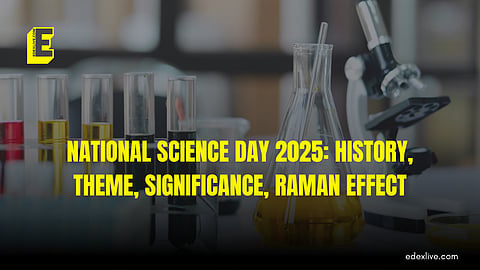

National Science Day is observed annually in India on February 28 to commemorate the groundbreaking discovery of the scattering of photons by Indian scientist Chandrasekhara Venkata Raman in 1928. This phenomenon, later known as the Raman Effect, earned Raman the Nobel Prize in Physics in 1930, stated NDTV.
On this day, educational institutions, research centres, and scientific organisations across the country host quiz competitions, seminars, and various events to celebrate scientific achievements.
Raman Effect
According to the Ministry of Culture, the Raman Effect is a phenomenon in spectroscopy, which is defined as the scattering of photons by excited molecules at higher energy levels. Specifically, it is the change in the wavelength of light that occurs when a light beam is deflected by molecules.
When a beam of light traverses a dust-free, transparent sample of a chemical compound, a small fraction of the light emerges in directions other than those of the incident (incoming) beam. Most of this scattered light is of an unchanged wavelength. A small part, however, has wavelengths different from those of the incident light; its presence is a result of the Raman Effect.
History the day
The National Council for Science and Technology Communication (NCSTC), in 1986, asked the Government of India to announce February 28 as National Science Day. The government accepted and declared the day as National Science Day. The first National Science Day was celebrated on February 28, 1987.
Theme 2025
The theme for National Science Day 2025 is Empowering Indian Youth for Global Leadership in Science & Innovation for Viksit Bharat. The theme will focus on encouraging young minds to recognise groundbreaking contributions and celebrate India's scientific achievements.
